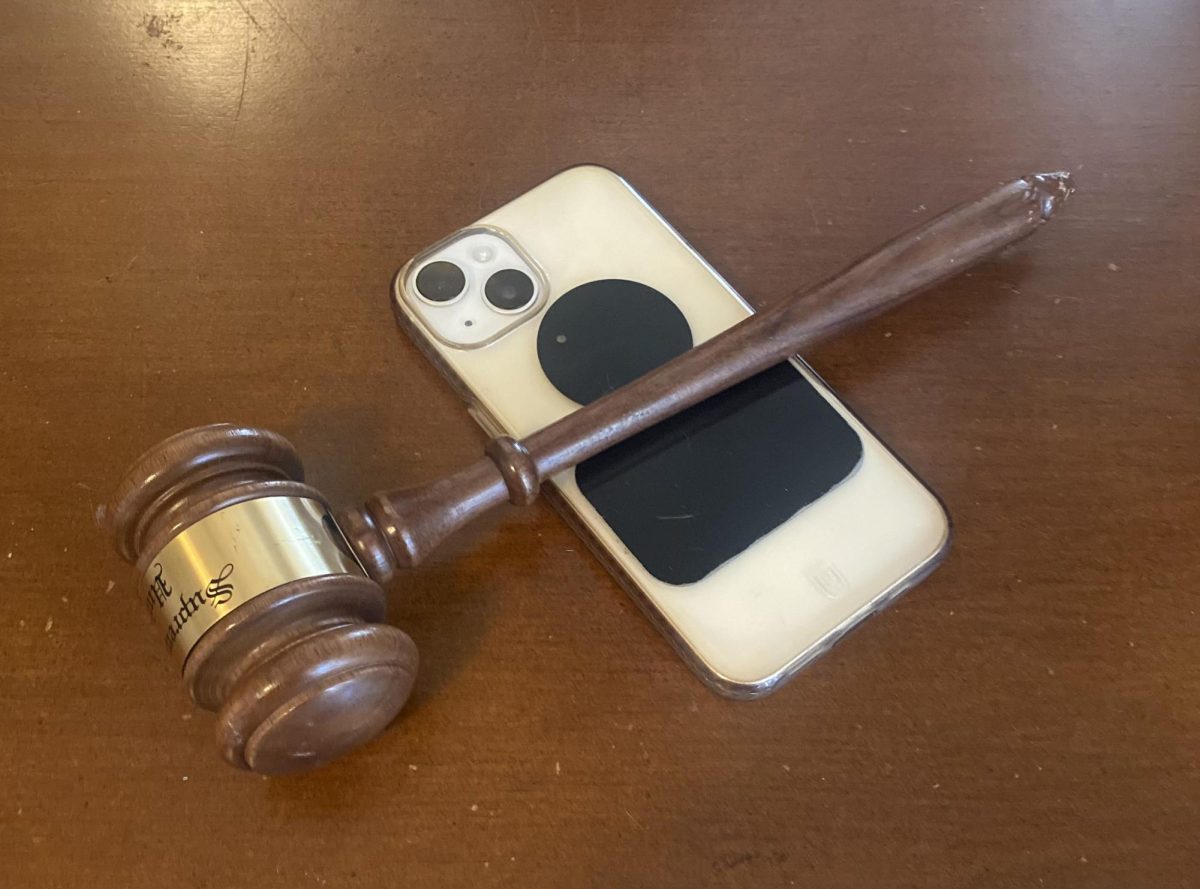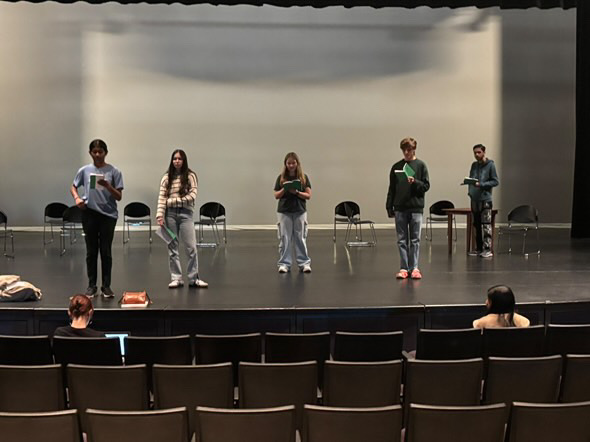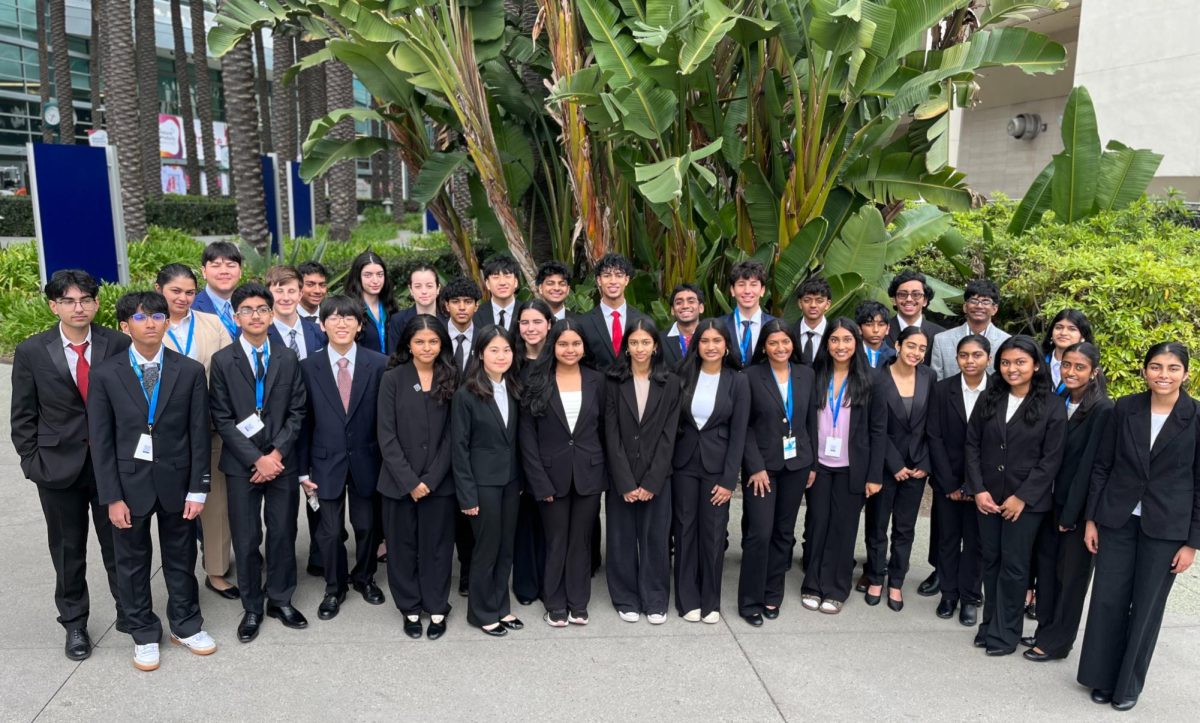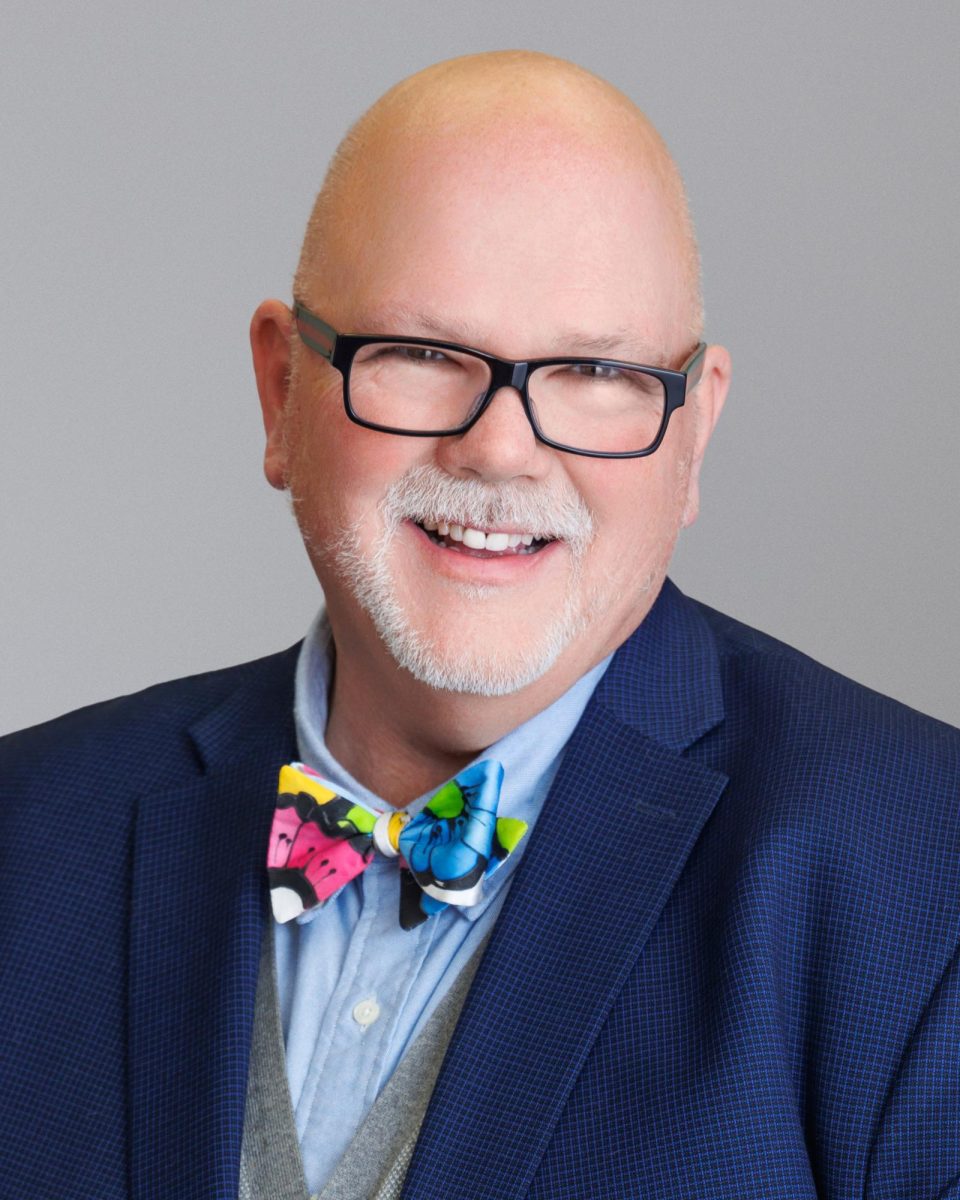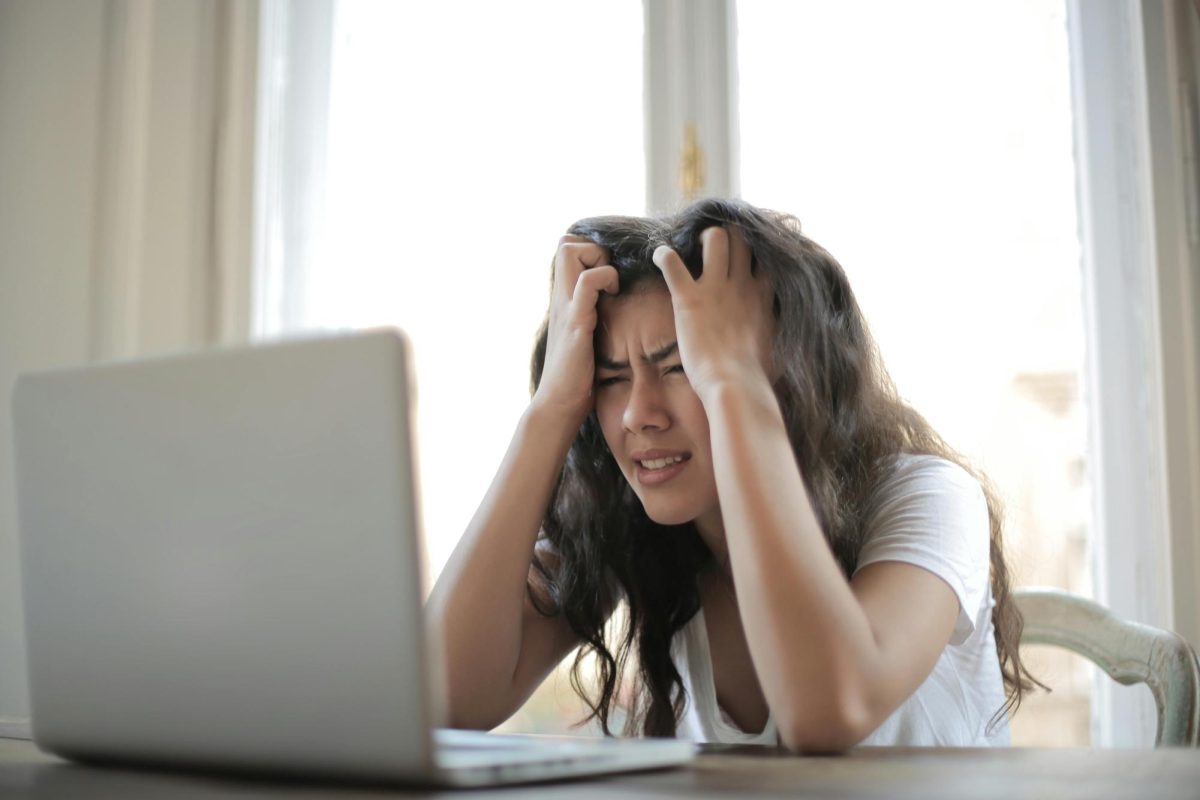There is a trial going on which is posed to have tremendous consequences on Wilcox. A deliberation which is severely under-discussed on campus, but whose judgement will affect each and every one of us. An inquiry in which the accused is someone dear to us all; a court case where the prosecution carries the whole weight of a state’s government. A tribunal which may only decide life — or death. I am speaking of the trial of the century: the trial of our smartphones.
September 2024. California’s Governor signs Assembly Bill 3216, putting California public schools on a timer to adopt some kind of policy restricting phone use by July 1, 2026. The bill is not without precedent. In 2019, California passed a bill granting schools the authority to regulate school usage; now, it joins eight other states in its prosecution of smartphones, all of which have laws requiring schools to restrict phone usage in some way.
The Santa Clara Unified School District acted soon after the law’s passing. Since a little over a year ago, a policy restricting phones has been in the works, going through the feedback of various district stakeholders. This has included the student senate, which helped draft a phone policy, as well as parents. The district has also consulted heavily with other schools that already have anti-phone policies. Of these, San Mateo High School has been eminent, having sentenced the smartphone to life in the 2021-2022 school year. The district has facilitated discussions between SCUSD and San Mateo parents, where the latter shared their experiences with a phoneless campus.
So what sentence has been proposed for the defendant, and on what counts is it being prosecuted? According to Vice Principal Luzon, a day on campus with the proposed policy would look something like the following:
Students would enter school with their smartphone in one hand, and district-provided Yondr pouches (a brand of magnetic pouches for phones that aims to make “phone-free spaces”) in the other. They would then “Yondr” their phones, placing them within the pouch at the first bell, and keeping them magnetically sealed until the last. Unlocking stations would be in classrooms as well as in the office, allowing for brief “UnYondr-ing” upon request or permanent liberation by their final period teacher.
As for the district’s reasoning for jumping at the chance to create an anti-phone policy so quickly, Ms. Luzon, who has been involved with much of the policymaking process, pointed out the crimes the smartphone stands accused of. The top ones include facilitating cyberbullying — which SCUSD was already seeking to clamp down on alongside other kinds of bullying this year — limiting socialization between students, and acting as a drain on students’ attention.
But the policy isn’t posed only to lock up phones. Everything is on trial: smartwatches, MacBooks, AirPods — school-issued Chromebooks will effectively become the only UnYondred device allowed to roam free on campus.
In a trial this broad, all of Wilcox has effectively become the jury for the accused. And from students, to teachers, to administrators, the community’s judgment seems to land widely.
The three teachers interviewed for this article — Mr. Feain, Ms. Pounds, and Mr. Contreras — agreed on one thing: students having phones out in class is a near omnipresent problem for them. “Every class session. Multiple times. Constantly,” Mr. Feain articulates. Both Mr. Feain and Ms. Pounds specify that the phenomenon is especially prevalent amongst their upperclassmen; the former even hung up a “phone hotel” in one class (a set of pouches in which students deposit their phones before class begins) as a makeshift solution.
The predominant feeling amongst students interviewed about the proposed sentence against smartphones seemed to be at once understanding but apprehensive. One common sentiment given in defense of the client was that phones are important for many day-to-day things students do, like communication. Ariella Faershtein, a Wilcox freshman, states “I’m hoping that next year I’ll actually realize it has a good impact. But for now I’m just kind of worried about not being able to tell the time during lunch because they take away my watch or… not having my phone and the capability to text my parents whenever I need.” Wilcox junior Sabat Sultan adds that for club activities during the school day, “we do use phones and other personal devices to communicate with each other. Robotics uses their own personal laptops, and for clubs we communicate through Messages… it’s an instant way to communicate rather than emailing… no one constantly checks their emails, compared to Messages.”
While Mr. Contreras stated he didn’t have a strong opinion on the policy itself, he does believe it’s better to have one, uniform policy on phones across the school than not. Mr. Feain and Ms. Pounds, meanwhile, echoed administration’s claims against the phone when outlining the two reasons they strongly support the policy: limiting how distracted students are, and encouraging socialization.
Ms. Pounds explains, “phones get in the way of learning… I cannot compete with TikTok, I cannot compete with Instagram. Students need help making the right choices… because who wouldn’t choose Instagram and TikTok over writing an essay?” To the point of student socialization, Mr. Feain adds, “even in lunch everyone’s disconnected… they’re on their phones. And you can see in the classroom there’s times I’ll say ‘Everyone can pack up’ and students are just not talking… they’re all on their phones.”
As of now, the policy is still in the re-drafting phase. It’s slated to go to a board vote some time in the coming months. Both teachers and students were asked what, if anything, they would like to see changed about the policy, or any concerns they have about it.
Juniors Vedant Garg and Roger Zhang agreed that their main issue with the policy was the lunchtime restriction. Vedant posits that, compared to individual Yondr pouches, he’d rather see the implementation of phone hotels: “[the Yondr pouches] seem like an expense… that you can accomplish with cheap iPhone pouches… and that way you can keep using your phone during breaks and stuff.” Roger says, “If all teachers the period before lunch unlock [our] phones I think I’ll be okay with it.”
For her part, Ariella contests the policy’s current ban on electronic watches. Her feedback represents a larger sentiment of dissatisfaction with the ban on non-phone electronics. One student — Evelyn O’Malley — even created a petition to gather signatures for an email to the Board protesting the policy’s ban on personal devices, which received numerous signatures through March 21st. The petition claimed that limiting students to restricted, school-issued chromebooks will be especially harmful for the research-heavy work of students in Journalism. It explained that school devices’ limitations “can often lead to odd situations, for example, the word ‘Mahjong’ and all alternate spellings being banned from Google search.”
Feedback from the three teachers on the policy mainly centered on smaller details and logistics. Mr. Contreras hopes the final wording of the policy will be clear about exactly who is responsible for unlocking students’ phones at the end of the day; Mr. Feain wants to make sure that students with medical reasons to use their phones are accounted for; and Ms. Pounds establishes that, in her estimation, the policy’s consequences for students who don’t use their pouches need to be clearly communicated and present.
Ultimately, the verdict remains hung. Our smartphones will, one way or another, face a sentence before July 2026, but whether it’s for life is yet to be seen. There is still time for testimony; whether through petitions or emails or just word-of-mouth, anyone with thoughts, feedback, or proposed changes for the policy can yet speak up. Details like whether personal devices are banned or the exact logistics of when/how phones will be locked are still subject to change. If readers wish to provide their input regarding the outcome this crucial trial, they can email an SCUSD board member, or plan to show up at an upcoming board meeting to voice their opinions (dates and agendas found at https://www.santaclarausd.org/about-us/board-of-trustees/board-meetings).

